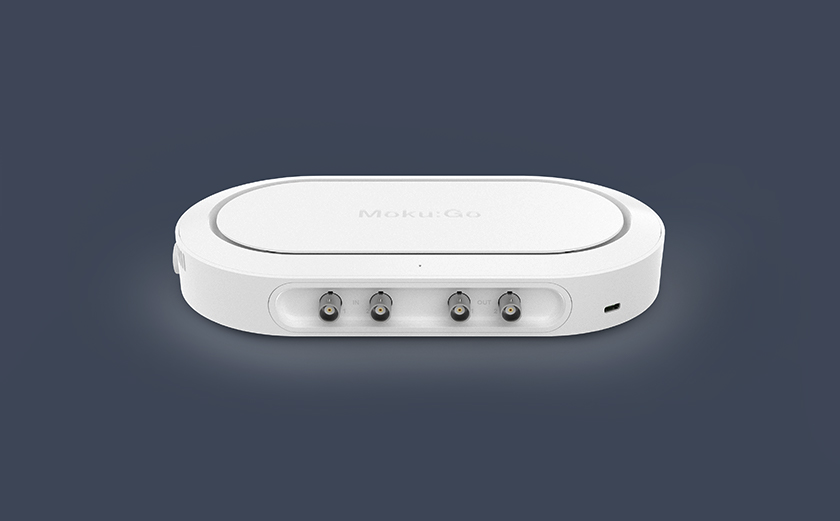Oscilloscope
Available on Moku:Go, Moku:Lab, and Moku:Pro hardware

Key Features
Triggering options
TTL-compatible trigger
On-board signal analysis tools
Includes a variety of visualization tools including measurement trends and histograms
Integrated waveform generator
Multi-channel, high-speed waveform generator
Math channel
Real-time math operations such as addition, subtraction, and FFT with support for arbitrary functions
Complete API integration
Integrate with your current system through Python, MATLAB, or LabVIEW APIs
Measurements and cursors
Extensive selection of built-in measurements and draggable cursors
Applications
• Signal monitoring and analysis
• Circuit design and characterization
• Jitter/clock analysis
• Photo detector alignment
• Automated system test
• System test and debug
Compare hardware platforms
Choose the platform with the specifications that best suit your application. With Moku hardware you get the signal processing power of the FPGA combined with a high-quality analog front-end, ensuring both flexibility and performance.

Channel count
2 inputs / 2 outputs
Sampling rate
125 MSa/s
Bandwidth
30 MHz
ADC resolution
12 bits
Software & Utilities
macOS App
Windows App
API support for Python and MATLAB
Explore Moku:Go hardware

Channel count
2 inputs / 2 outputs
Sampling rate
500 MSa/s
Bandwidth
200 MHz
ADC resolution
12 bits
Software & Utilities
iOS App
Windows App
API support for Python, MATLAB, and LabVIEW
Explore Moku:Lab hardware

Channel count
4 inputs / 4 outputs
Sampling rate
Up to 5 GSa/s
Bandwidth
600 MHz
ADC resolution
10 / 18 bits blended
Software & Utilities
iOS App
API support for Python and MATLAB
Explore Moku:Pro hardware